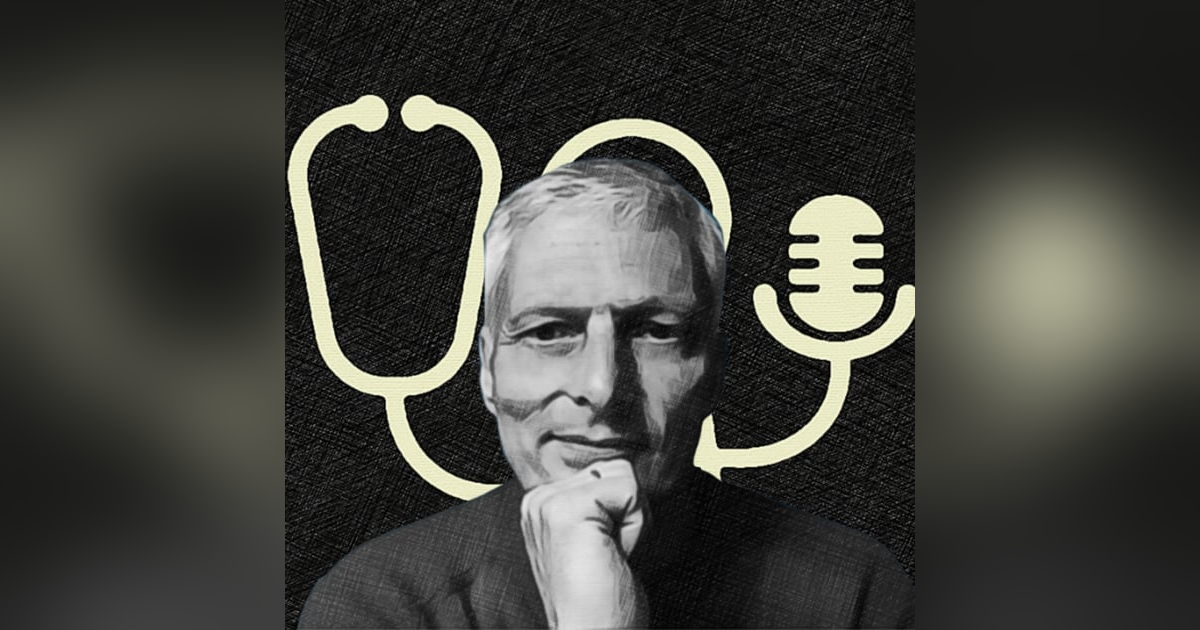125: Life After Practice Ownership, Locuming Pro Tips, Where Telemedicine Could Fit Into Your Vet Life, And Blurring The Lines Between Work and Fun. With Dr Wolfgang Dohne

In this episode, Dr. Wolfgang Dohne shares his unique journey through the veterinary profession, touching on the challenges and opportunities of owning and selling a practice, transitioning to locum work, and exploring the evolving role of telemedicine in veterinary care. We discuss the importance of maintaining a balance between work and life, finding fulfillment in varied career phases, and embracing new opportunities, whether through international locum placements or integrating telemedicine into practice. Practical advice includes the value of exercise, the courage to say no, and appreciating life’s moments while building a flexible, rewarding career.
Be part of the conversation to help shape the Vet Vault with your feedback.
Many of us dream of building a practice, and then one day selling it and walking off into the sunset, minus responsibilities, and with our money problems solved. But what actually happens after what’s supposed to be ‘the big goal’? Who are you when you’re no longer the boss, and what’s next?
In this episode, Dr Wolfgang Dohne tells us how he re-invented and reinvigorated his career post the sale of his practice. He also give shares what he’s learnt about being a professional locum vet: the pro tips, the pros, and the cons, and what working in telemedicine has taught him about telemedicine as a career option, and also its potential role in our everyday lives in clinical practice.
Join us at Science Week for the most cutting edge conference topics out there.
Join our community of Vet Vault Nerds to lift your clinical game and get your groove back with our up-to-date, easy-to-consume clinical episodes at vvn.supercast.com.
Get help with your tricky cases in our Specialist Support Space.
Subscribe to our weekly newsletter here for Hubert's favourite clinical and non-clinical learnings from the week.
Topics and Time stamps
04:41 Balancing Work and Personal Life
13:47 The Decision to Sell and Its Impact
23:30 Embracing Locum Work and Telemedicine
28:16 Tips for Successful Locuming
35:22 Overcoming Locum Anxiety
35:45 Essential Tools for Locum Success
36:31 Navigating Different Practice Management Systems
40:51 Building Strong Relationships with Nursing Teams
44:25 Introduction to Telemedicine
48:50 Practical Applications of Telemedicine
53:01 Integrating Telemedicine into Practice
- Personal Values and Priorities: Aligning work with personal interests is crucial for work-life integration. Dr. Wolfgang found renewed satisfaction in locum work because it allowed him to prioritise his love of travel and clinical practice while shedding the administrative burdens he disliked .
- Flexibility and Control: The ability to choose work locations and set one's own schedule empowers individuals to structure work around personal commitments and preferences. Dr. Wolfgang highlights this as a key benefit of locum work, enabling him to pursue his travel goals and spend time with family .
- Recognising Limits and Saying "No": Setting boundaries and protecting personal time are essential for avoiding burnout and maintaining well-being. Dr. Wolfgang advises young vets to "learn to say no" and prioritise their own well-being over unreasonable demands or potentially unsafe situations. He suggests that confidence to set boundaries often comes with experience, .
- Embracing New Opportunities and Adapting to Change: The veterinary profession offers a variety of career paths beyond traditional practice ownership. Telemedicine, for example, can provide flexible work arrangements and cater to diverse interests. Being open to exploring new avenues can lead to better work-life balance and sustained career satisfaction.
- Financial Security: While not explicitly discussed, the Dr. Wolfgang's ability to transition to locum work and travel extensively stems from his financial stability after selling his practice. Financial security can provide greater freedom and flexibility to prioritise personal pursuits, making work-life integration more attainable.
- In this episode, Dr. Wolfgang uses terms such as "castrated" and "feeling of loss" to describe the emotional impact of selling his veterinary practice, which had been a central part of his professional identity for many years. He found himself questioning his purpose and feeling uncertain about his future role in the profession.
- This sense of loss can be attributed to the fact that selling a business often entails relinquishing control, status, and a clearly defined role that had previously provided a sense of validation and purpose. The individual is no longer "the boss," and their professional identity may feel less distinct.
- Dr. Wolfgang describes his transition to locum work as a way to regain control over his work-life balance and focus on the clinical aspects of veterinary medicine that he enjoyed the most. He found satisfaction in being able to choose his work locations, set his own schedule, and avoid the administrative burdens associated with practice ownership.
- This highlights the potential for career transitions to align individuals' work with their evolving interests and priorities, leading to greater job satisfaction and a renewed sense of purpose.
- Be more determined and confident. He reflects that when he was younger, he often undervalued himself and his ideas, dropping projects because he felt they weren't good enough. Looking back, he wishes he had more confidence to pursue his ideas further.
- Learn languages. The speaker believes there is immense value in learning languages. He acknowledges that as a native English speaker, it can be tempting to rely on others' proficiency in English. However, he encourages language acquisition as a valuable skill.
- Enjoy life while it's good. He reminisces about feeling happy and fulfilled at seventeen, and encourages his younger self to savor those moments of joy. He emphasises the importance of appreciating the present moment and recognising that some periods in life won't return.






